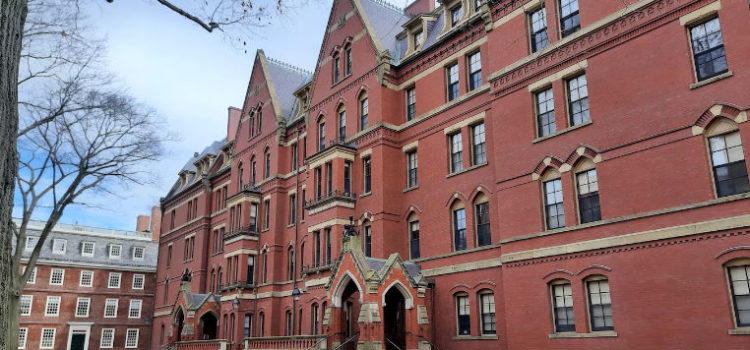
I got questions from a high school student about the Ivy League. My response are below.
- What is your current line of work/career?
I build businesses, mainly in online education. Brief bio here.
- Does that line of work correspond to the major which you graduated with?
No – I was pre-med and went into an MD-PhD program, but decided to drop out to build businesses. I explain why here.
- Do you feel that you developed substantial connections with professors, fellow graduates, or administrators during your time at the university that could benefit you somehow in the future?
Yes – mainly with classmates. Some became my best friends, wife, business partners, and thinking partners. Like with high school, you won’t stay in touch with the vast majority of people you know, but hopefully you’ll have a handful who will stay in your close circle for decades.
I don’t keep in touch with professors much, but I probably would have had I become a career academic.
- In your opinion, is the price of tuition to attend an Ivy League school worthwhile due to the value of the education?
Overall, I think the tuition is worth it for a lot of students. From a pure financial point of view, the earning potential of most Ivy League grads is pretty high, and it doesn’t take much for the tuition to be ROI positive. For example, if someone earns an average of $100k x 40 years = $4mm over a career lifetime, then if going to an Ivy League school increases your earning potential by 5% vs going to a state school, then that covers the cost of Ivy League tuition. And many will earn much more than $100k per year, so the calculus becomes even easier.
If you qualify for financial aid, with Ivy League schools you can get most of it covered. A good % of students get effectively a full ride.
To be clear, I don’t think the education as in the actual lectures and problem sets are where the value is though. e.g. If you’re premed, you’re not going to learn anything that special at Harvard vs at UCSD. In fact, often the professors doing cutting-edge research are bad teachers. The difference in value comes from 1) the quality of the classmates around you, 2) the quality and breadth of opportunities available to you during school, 3) the opportunities available to you after graduating because of the reputation of your alma mater. These are what increase your earning potential.
If you’re going into a career that doesn’t pay as well, then it can be harder to justify the ROI. But many high school kids change their career decision during and after college, so I wouldn’t really decide not to go to an Ivy League for this reason alone.
—–
Finally, I really want to emphasize that going to an Ivy League school is NOT a make or break thing on your life. Whether any given person succeeds has much more to do with their internal characteristics (ambition, resourcefulness, curiosity, etc) than with what school they go to. There are people who went to state schools or never went to college who are incredibly successful, and there are Harvard grads who are aimless and miserable. Likewise, someone who comes out of Harvard successful will very likely have been successful coming out of say UCSD – it’s the person that matters, not the school.
You might ask, well why does the average Harvard student seem more conventionally ‘successful’ than the average UCSD student? I say the major reason is that the average Harvard student comes in more qualified (they worked harder in K-12, they naturally have more talent and learn faster, their families had more resources). It’s not because the Harvard environment did something to make them successful that the UCSD student doesn’t get.
In summary, I think elite schools give a bit of a nudge, but it is not a magical 10x Willy Wonka golden ticket kind of thing. Despite everything I say here in support of Ivy League schools, I want to emphasize this point. A lot of students will apply to reach schools and get rejected, and while this will sting, I hope they realize that the rejection is not a statement on their future potential. If any person continues improving themselves and stays ambitious, they will be more successful than the Harvard grad who doesn’t. Life is really a marathon and the college you attend is step 8 out of 50.
- What was the general environment at your school? This includes academic, social, cultural, etc.
I found it collaborative and pretty fun. I was not super stressed, I didn’t find it as cutthroat as my high school.
Most people were energetic and motivated to make their dent on the world and enjoyable to get to know. I didn’t get along with everyone, but you never will in any group of 2000 people. There’s enough diversity that you can find your ‘people’.
It felt like the administration and staff really wanted the students to succeed and we got a lot of support.
- Were there any instances where you felt that some people who attended your school were in some way not qualified to attend?
From an academic point of view, there were weaker students – often the ‘legacies’ whose parents attended Harvard or donated a lot of money. But this is a narrow viewpoint for who ‘deserves’ to be at an elite school. Colleges want to enroll students who will become the most successful alumni and make the biggest impact on the world – I write more about this in my How to Get Into Harvard guide. So if you’re the daughter of a head of state, or the son of a billionaire founder, chances are you’ll have a bigger impact (on the world and your classmates) even if you got a 1450 on the SAT, compared to a randomly chosen 1600 scorer. Sucks but true.
Likewise the recruited athletes were academically weaker than non-athletes, but I always found them very hard working and disciplined when I was a TA so I respected them. You can debate how important having competitive athletic teams is to an Ivy League school and whether they should award those spots to non-athletes, but that’s another can of worms that I don’t have a strong opinion about.
- Do you feel that being at an Ivy League university provided you with opportunities such as internships, jobs, etc, that you would not have been given had you attended a non-Ivy? This includes during your time there and/or after you graduated.
During school – yes, I think Harvard has higher-quality, broader, and more interesting opportunities compared even to a high-quality state school like UCLA, and certainly moreso than a non-top-50 school. The professors are doing the cutting-edge research; the professional schools are usually top-tier, so you get more access to activities at eg Harvard Business School, Harvard Law, Harvard Med, etc. Further, Harvard has much fewer students than UCLA, so the opportunities per student density is higher too. As one example, my pre-med/pre-law friends at state schools found it infuriating that their pre-professional advisors didn’t have time for them, while this was never a problem at Harvard.
After school – yes, I think an Ivy League name makes it easier to get your foot in the door. But after say 5 years in your career it starts mattering a lot less – it’s much more about how well you did your work – and by 15 years in, no one cares what school you went to.
With that said, again I want to emphasize that these are more nudges on a person’s trajectory, rather than some 10x magical make-or-break thing. A successful person will have been successful regardless of the school they go to; a better school may make some things easier but in the long run it’s not going to make a huge difference.



